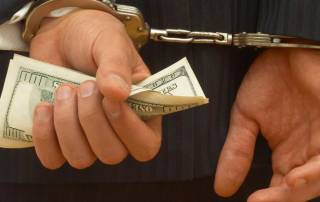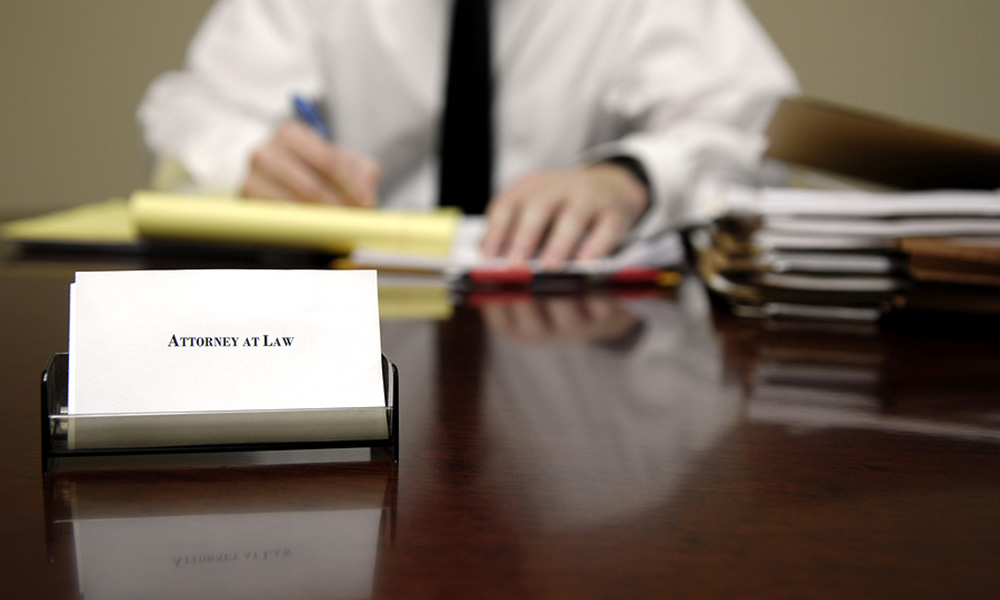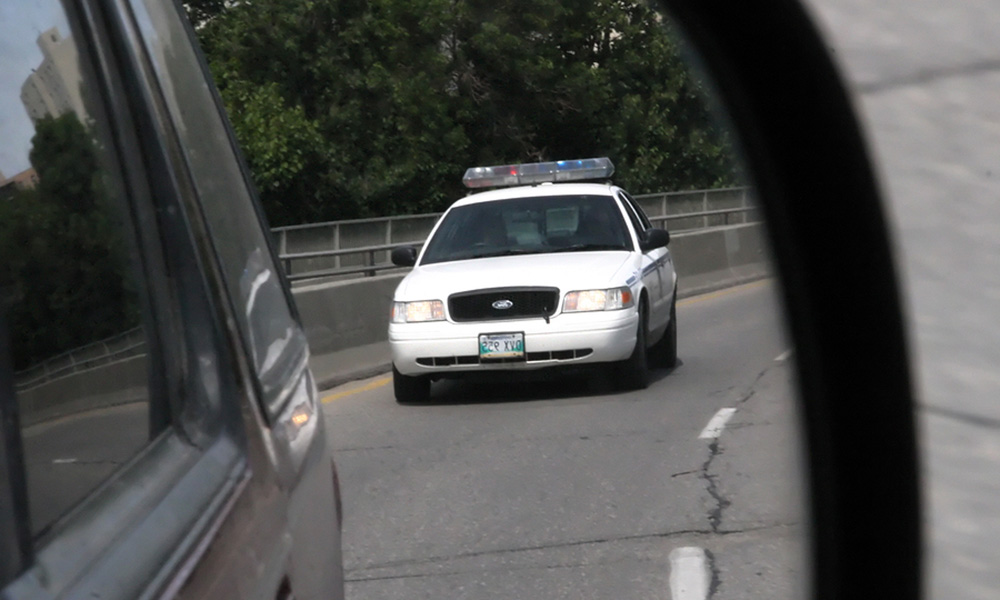Being accused of a white-collar crime can damage your reputation severely. In general, white-collar crimes are deceptions or cover-ups carried out for financial gain. They include crimes like embezzlement, credit card fraud, identity theft, money laundering, Medicaid and Medicare fraud, insurance fraud, mail and wire fraud, real estate and mortgage fraud, tax fraud, racketeering, securities fraud, and a number of other non-violent, financially-based felonies and misdemeanors. A conviction can result in fines, probation or prison, and mandatory restitution. Moreover, civil lawsuits filed by white-collar crime victims are virtually inevitable after a prosecutor files criminal charges.
A white-collar crime investigation can drag on for months and eat away at your resources, even if you’re eventually vindicated. A good criminal defense lawyer will save you a great deal of time and aggravation during an investigation or any other legal procedure. If you’ve been charged with a white-collar crime, an experienced criminal defense attorney can gather evidence and examine witnesses on your behalf; can cast doubt on the prosecution’s evidence and witnesses; and can negotiate to have your charge or charges reduced or dismissed entirely. If you are charged with any white-collar crime in the New York City area, get the legal help you need and speak to an experienced Long Island criminal defense attorney immediately.
Common White Collar Crimes
Everyone knows there are millions of people in New York City – after all, it’s one of the world’s biggest cities – and where there are millions of people, some of them are desperate for money. They might “borrow” money from their job – or from other funds entrusted to them – with every intention of paying it back. In many embezzlement cases, suspects had no criminal intent to steal the money permanently. In the New York City area, if you’re accused of embezzlement, get skilled legal assistance right away from an experienced Long Island criminal defense attorney.
Any time you take another party’s property and intend to keep that property, that’s theft. But if you have legal permission to hold property before you act to steal it, that’s considered embezzlement. If you’re accused of either crime, a good criminal defense attorney can usually assess the details of the case, help you develop a strong defense, and fight aggressively for the best possible final result.
Embezzlement charges almost never lead to “slam-dunk” convictions. Sometimes a suspect has been framed by a colleague. In other situations, money has been taken without anyone’s knowledge, and the most convenient person is accused. Nevertheless, the state has to prove guilt beyond a reasonable doubt. With the many complications that can accompany embezzlement cases, it’s vital to have experienced, aggressive defense representation. In many embezzlement trials, a good criminal defense lawyer can offer reasons to “reasonably doubt” the charge against you.
Blackmail is another type of white collar offense, but it is not specifically listed as a crime under New York law. However, the essence of blackmail, which is threatening a person or entity with violence, property damage, or the release of sensitive information if the person or entity fails to do something, usually pay money, remains illegal under New York law as described in New York’s larceny statutes.
Depending on how the crime is committed, extortion can be charged by the state or federal government. Usually, when the offense violates interstate regulations, the charges will be made by the federal government. Either way, serious prison time faces anyone accused of blackmail or extortion in New York.
Specifically, in New York, extortion or blackmail are methods by which to commit a larceny, which is generally theft of property. In most cases, the property threatened is cash, but it could also include documents, recordings, etc. The value of the property is not important (usually, however, the more valuable the property, the more serious the offense in the eyes of the law), only that the property belonged to another.
Larceny is committed by extortion when someone causes another to deliver property by instilling the fear that if the property is not delivered, then the person will physically injure the other, will damage the other’s property, will engage in a criminal offense, will make false accusations against the other, will expose a secret or otherwise make public an asserted fact, will cause a strike or boycott to take place, will testify or withhold testimony with respect to the other’s legal claim or defense, will abuse an official position so as to affect the other adversely, or will perform just about any other act which is materially calculated to hurt the safety, health, business, career, finances, reputation, or relationships of the other.
White Collar Crime Consequences
If you think that white collar crimes are not taken seriously by the courts, think again. Although there’s a popular misconception that white-collar offenders get a mere slap on the wrist, the reality is quite the opposite. In fact, prosecutors are now putting more white-collar offenders behind bars, and for longer periods of time, than ever before. If you’re accused of a white-collar crime in New York, you’re going to need skilled and aggressive legal representation; speak at once to an experienced Long Island criminal defense attorney.
Sentences for white-collar crimes can be severe; for the most egregious offenders, the effect is life in prison. Sholam Weiss, convicted of multiple fraud and money laundering counts in the year 2000, was sentenced for 845 years in prison. Keith Pound, a co-defendant of Weiss, received a 750-year sentence and was ordered to pay $139 million in restitution. Pound died in prison in 2004. Norman Schmidt received 330 years for his role in a Colorado investment scam; he also died in prison. For at least a decade, sentences have been increasing for those convicted of white-collar crimes. From 2005 through 2012, the average length of prison sentences for fraud convictions increased by 48 percent. Fines for white-collar crimes totaled about $8 billion in 2008, but by 2012 that amount rose to almost $12 billion.
However, many people accused of white-collar crimes are mistakenly accused; others genuinely intended to “pay it back” and had no criminal intent. While power and wealth really do not affect the outcomes of white-collar crime cases, having a well-prepared defense most certainly does affect outcomes. A good criminal defense lawyer can look at the charges against you, develop an aggressive defense strategy, and bring your case to its best possible resolution. If you’re charged with embezzlement, fraud, or any other white-collar crime in the New York City area, consult at once with an experienced Long Island criminal defense attorney.















